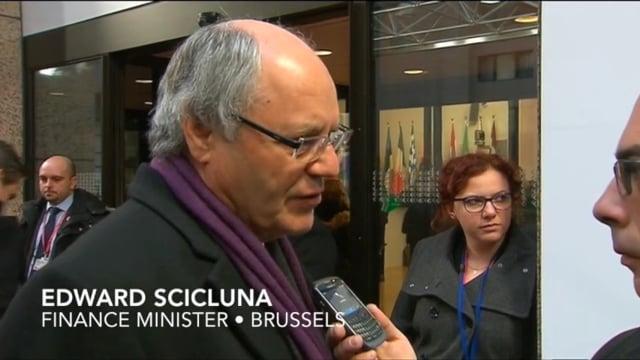‘Honour debt obligations and we will be flexible’ – Scicluna tells Greece
Finance Minister Edward Scicluna says Malta ‘ready to be flexible once debts are honoured’


Finance Minister Edward Scicluna was equivocal in that Malta would be in favour of flexibility only after Greece commits itself to honour its debt obligations.
Scicluna’s comments were delivered during a meeting of the Eurogroup which was cut short after Greece rejected an opening EU bailout offer as “absurd” and “unacceptable”.
“Once Greece is committed to honour its debt obligations, Malta is in favour of flexibility that would allow Greece some fiscal and economic latitude in order to continue addressing the economic and social consequences of the crisis,” the Maltese finance minister told euro area finance ministers.
“But the Greek authorities should work within the context of the current programme in order to ensure a smooth period towards eventual new and mutually agreed arrangements that would safeguard the financial and economic interests of both Greece and the euro area.”
Scicluna said that “such outcomes can only be achieved through intense constructive dialogue, an open and trust-worthy working relationship between all the relevant stakeholders, and mutual respect and solidarity”.
Malta joined fellow colleagues in seeking a common language with a view of bridging outstanding differences.
The Eurogroup expressed disappointment over the fact that there was still no common ground with the new Greek government.
The Eurogroup will reconvene when Greece is ready to ask for an extension of the current program.
A leaked draft Eurogroup statement showed that the Eurogroup wanted the Greek authorities to agree they intended “to successfully conclude the programme, taking into account the new government’s plans”.
“In this context, we intend to make the best use of the existing built-in flexibility in the current programme,” the rejected draft statement read.
Greece's government, led by the radical left-wing Syriza party, has said that the conditions of the €240bn bailout have made Greece penniless. The new government rejects the "troika" team - the EU, International Monetary Fund (IMF) and European Central Bank (ECB) - overseeing the bailout's implementation.
The IMF and the EU say there should be no change to the conditions of the €240bn loan.
Greece's current bailout expires on 28 February and any new agreement would need to be approved by national governments.
Alexis Tsipras’s anti-austerity government wants to ditch part of the bailout and is asking for temporary funding until it can introduce a new four-year reform plan.
The meeting also discussed and supported the request by Portugal to allow them to pay off some of the IMF loans in earnest. In addition, the Eurogroup also took note the on the state of play of the Cypriot program and also took stock of the economic situation in the Euro zone on the basis of the winter forecast.























